- Home
- Hilary Mantel
The Assassination of Margaret Thatcher
The Assassination of Margaret Thatcher Read online
The author and publisher have provided this e-book to you for your personal use only. You may not make this e-book publicly available in any way. Copyright infringement is against the law. If you believe the copy of this e-book you are reading infringes on the author’s copyright, please notify the publisher at: us.macmillanusa.com/piracy.
To Bill Hamilton,
the man in William IV Street:
thirty years on, with gratitude
CONTENTS
TITLE PAGE
COPYRIGHT NOTICE
DEDICATION
SORRY TO DISTURB
COMMA
THE LONG QT
WINTER BREAK
HARLEY STREET
OFFENSES AGAINST THE PERSON
HOW SHALL I KNOW YOU?
THE HEART FAILS WITHOUT WARNING
TERMINUS
THE ASSASSINATION OF MARGARET THATCHER
ALSO BY HILARY MANTEL
ABOUT THE AUTHOR
CREDITS
COPYRIGHT
SORRY TO DISTURB
In those days, the doorbell didn’t ring often, and if it did I would draw back into the body of the house. Only at a persistent ring would I creep over the carpets, and make my way to the front door with its spy hole. We were big on bolts and shutters, deadlocks and mortises, safety chains and windows that were high and barred. Through the spy hole I saw a distraught man in a crumpled, silver-gray suit: thirties, Asian. He had dropped back from the door, and was looking about him, at the closed and locked door opposite, and up the dusty marble stairs. He patted his pockets, took out a balled-up handkerchief, and rubbed it across his face. He looked so fraught that his sweat could have been tears. I opened the door.
At once he raised his hands as if to show he was unarmed, his handkerchief dropping like a white flag. “Madam!” Ghastly pale I must have looked, under the light that dappled the tiled walls with swinging shadows. But then he took a breath, tugged at his creased jacket, ran a hand through his hair and conjured up his business card. “Muhammad Ijaz. Import-Export. I am so sorry to disturb your afternoon. I am totally lost. Would you permit use of your telephone?”
I stood aside to let him in. No doubt I smiled. Given what would ensue, I must suppose I did. “Of course. If it’s working today.”
I walked ahead and he followed, talking; an important deal, he had almost closed it, visit to client in person necessary, time—he worked up his sleeve and consulted a fake Rolex—time running out; he had the address—again he patted his pockets—but the office is not where it should be. He spoke into the telephone in rapid Arabic, fluent, aggressive, his eyebrows shooting up, finally shaking his head; he put down the receiver, looked at it in regret; then up at me, with a sour smile. Weak mouth, I thought. Almost a handsome man, but not: slim, sallow, easily thrown. “I am in your debt, madam,” he said. “Now I must dash.”
I wanted to offer him a what—bathroom break? Comfort stop? I had no idea how to phrase it. The absurd phrase wash and brushup came into my mind. But he was already heading for the door—though from the way the call had concluded I thought they might not be so keen to see him, at his destination, as he was to see them. “This crazy city,” he said. “They are always digging up the streets and moving them. I am so sorry to break in on your privacy.” In the hall, he darted another glance around and up the stairs. “Only the British will ever help you.” He skidded across the hall and prized open the outer door with its heavy ironwork screen; admitting, for a moment, the dull roar of traffic from Medina Road. The door swung back, he was gone. I closed the hall door discreetly, and melted into the oppressive hush. The air conditioner rattled away, like an old relative with a loose cough. The air was heavy with insecticide; sometimes I sprayed it as I walked, and it fell about me like bright mists, veils. I resumed my phrasebook and tape, Fifth Lesson: I’m living in Jeddah. I’m busy today. God give you strength!
When my husband came home in the afternoon I told him: “A lost man was here. Pakistani. Businessman. I let him in to phone.”
My husband was silent. The air conditioner hacked away. He walked into the shower, having evicted the cockroaches. Walked out again, dripping, naked, lay on the bed, stared at the ceiling. Next day I swept the business card into a bin.
In the afternoon the doorbell rang again. Ijaz had come back, to apologize, to explain, to thank me for rescuing him. I made him some instant coffee and he sat down and told me about himself.
* * *
IT WAS THEN June 1983. I had been in Saudi Arabia for six months. My husband worked for a Toronto-based company of consulting geologists, and had been seconded by them to the Ministry of Mineral Resources. Most of his colleagues were housed in family “compounds” of various sizes, but the single men and a childless couple like ourselves had to take what they could get. This was our second flat. The American bachelor who had occupied it before had been moved out in haste. Upstairs, in this block of four flats, lived a Saudi civil servant with his wife and baby; the fourth flat was empty; on the ground floor across the hall from us lived a Pakistani accountant who worked for a government minister, handling his personal finances. Meeting the womenfolk in the hall or on the stairs—one blacked-out head to toe, one partly veiled—the bachelor had livened up their lives by calling “Hello!” Or possibly “Hi there!”
There was no suggestion of further impertinence. But a complaint had been made, and he vanished, and we went to live there instead. The flat was small by Saudi standards. It had beige carpet and off-white wallpaper on which there was a faint crinkled pattern, almost indiscernible. The windows were guarded by heavy wooden shutters that you cranked down by turning a handle on the inside. Even with the shutters up it was dim and I needed the strip lights on all day. The rooms were closed off from each other by double doors of dark wood, heavy like coffin lids. It was like living in a funeral home, with samples stacked around you, and insect opportunists frying themselves on the lights.
* * *
HE WAS A graduate of a Miami business school, Ijaz said, and his business, his main business just now, was bottled water. Had the deal gone through, yesterday? He was evasive—obviously, there was nothing simple about it. He waved a hand—give it time, give it time.
I had no friends in this city as yet. Social life, such as it was, centered on private houses; there were no cinemas, theaters or lecture halls. There were sports grounds, but women could not attend them. No “mixed gatherings” were allowed. The Saudis did not mix with foreign workers. They looked down on them as necessary evils, though white-skinned, English-speaking expatriates were at the top of the pecking order. Others—Ijaz, for example—were “Third Country Nationals,” a label that exposed them to every kind of truculence, insult and daily complication. Indians and Pakistanis staffed the shops and small businesses. Filipinos worked on building sites. Men from Thailand cleaned the streets. Bearded Yemenis sat on the pavement outside lock-up shops, their skirts rucked up, their hairy legs thrust out, their flip-flops inches from the whizzing cars.
I am married, Ijaz said, and to an American; you must meet her. Maybe, he said, maybe you could do something for her, you know? What I foresaw at best was the usual Jeddah arrangement, of couples shackled together. Women had no motive power in this city; they had no driving licenses, and only the rich had drivers. So couples who wanted to visit must do it together. I didn’t think Ijaz and my husband would be friends. Ijaz was too restless and nervy. He laughed at nothing. He was always twitching his collar and twisting his feet in their scuffed Oxfords, always tapping the fake Rolex, always apologizing. Our apartment is down by the port, he said, with my sister-in-law and my brother, but he’s back in Miami just now, a
nd my mother’s here just now for a visit, and my wife from America, and my son and my daughter, aged six, aged eight. He reached for his wallet and showed me a strange-looking, steeple-headed little boy. “Saleem.”
When he left, he thanked me again for trusting him to come into my house. Why, he said, he might have been anybody. But it is not the British way to think badly of needy strangers. At the door he shook my hand. That’s that, I thought. Part of me thought, it had better be.
* * *
FOR ONE WAS always observed: overlooked, without precisely being seen, recognized. My Pakistani neighbor Yasmin, to get between my flat and hers, would fling a scarf over her rippling hair, then peep around the door; with nervous, pecking movements she hopped across the marble, head swiveling from side to side, in case someone should choose that very moment to shoulder through the heavy street door. Sometimes, irritated by the dust that blew under the door and banked up on the marble, I would go out into the hall with a long broom. My male Saudi neighbor would come down from the first floor on his way out to his car and step over my brushstrokes without looking at me, his head averted. He was according me invisibility, as a mark of respect to another man’s wife.
I was not sure that Ijaz accorded me this respect. Our situation was anomalous and ripe for misunderstanding: I had an afternoon caller. He probably thought that only the kind of woman who took a lot of risks with herself would let a stranger into her house. Yet I could not guess what he probably thought. Surely a Miami business school, surely his time in the West, had made my attitude seem more normal than not? His talk was relaxed now he knew me, full of feeble jokes that he laughed at himself; but then there was the jiggling of his foot, the pulling of his collar, the tapping of his fingers. I had noticed, listening to my tape, that his situation was anticipated in the Nineteenth Lesson: I gave the address to my driver, but when we arrived, there wasn’t any house at this address. I hoped to show by my brisk friendliness what was only the truth, that our situation could be simple, because I felt no attraction to him at all; so little that I felt apologetic about it. That is where it began to go wrong—my feeling that I must bear out the national character he had given me, and that I must not slight him or refuse a friendship, in case he thought it was because he was a Third Country National.
For his second visit, and his third, were an interruption, almost an irritation. Having no choice in that city, I had decided to cherish my isolation, coddle it. I was ill in those days, and subject to a fierce drug regime that gave me blinding headaches, made me slightly deaf and made me, though I was hungry, unable to eat. The drugs were expensive and had to be imported from England; my husband’s company brought them in by courier. Word of this leaked out, and the company wives decided I was taking fertility drugs; but I did not know this, and my ignorance made our conversations peculiar and, to me, slightly menacing. Why were they always talking, on the occasions of forced company sociability, about women who’d had miscarriages but now had a bouncing babe in the buggy? An older woman confided that her two were adopted; I looked at them and thought Jesus, where from, the zoo? My Pakistani neighbour also joined in the cooing over the offspring that I would have shortly—she was in on the rumors, but I put her hints down to the fact that she was carrying her first child and wanted company. I saw her most mornings for an interval of coffee and chat, and I would rather steer her to talking about Islam, which was easy enough; she was an educated woman and keen to instruct. June 6th: “Spent two hours with my neighbor,” says my diary, “widening the cultural gap.”
Next day, my husband brought home air tickets and my exit visa for our first home leave, which was seven weeks away. Thursday, June 9th: “Found a white hair in my head.” At home there was a general election, and we sat up through the night to listen to the results on the BBC World Service. When we turned out the light, the grocer’s daughter jigged through my dreams to the strains of “Lillibulero.” Friday was a holiday, and we slept undisturbed till the noon prayer call. Ramadan began. Wednesday, June 15th: “Read The Twyborn Affair and vomited sporadically.”
On the sixteenth our neighbors across the hall left for pilgrimage, robed in white. They rang our doorbell before they left: “Is there anything we can bring you from Mecca?” June 19th saw me desperate for change, moving the furniture around the sitting room and recording “not much improvement.” I write that I am prey to “unpleasant and intrusive thoughts,” but I do not say what they are. I describe myself as “hot, sick and morose.” By July 4th I must have been happier, because I listened to the Eroica while doing the ironing. But on the morning of July 10th, I got up first, put the coffee on, and went into the sitting room to find that the furniture had been trying to move itself back. An armchair was leaning to the left, as if executing some tipsy dance; at one side its base rested on the carpet, but the other side was a foot in the air, and balanced finely on the rim of a flimsy wastepaper basket. Open-mouthed, I shot back into the bedroom; it was the Eid holiday, and my husband was still half awake. I gibbered at him. Silent, he rose, put on his glasses, and followed me. He stood in the doorway of the sitting room. He looked around and told me without hesitation it had nothing to do with him. He walked into the bathroom. I heard him close the door, curse the cockroaches, switch on the shower. I said later, I must be walking in my sleep. Do you think that’s it? Do you think I did it? July 12th: “Execution dream again.”
The trouble was, Ijaz knew I was at home; how would I be going anywhere? One afternoon I left him standing in the hall, while he pressed and pressed the doorbell, and next time, when I let him in, he asked me where I had been; when I said, “Ah, sorry, I must have been with my neighbor,” I could see he did not believe me, and he looked at me so sorrowfully that my heart went out to him. Jeddah fretted him, it galled him, and he missed, he said, America, he missed his visits to London, he must go soon, take a break; when was our leave, perhaps we might meet up? I explained I did not live in London, which surprised him; he seemed to suspect it was an evasion, like my failure to answer the door. “Because I could get an exit visa,” he said again. “Meet up there. Without all this…” he gestured at the coffin-lid doors, the heavy, willful furniture.
He made me laugh that day, telling me about his first girlfriend, his American girlfriend whose nickname was Patches. It was easy to picture her, sassy and suntanned, astonishing him one day by pulling off her top, bouncing her bare breasts at him and putting an end to his wan virginity. The fear he felt, the terror of touching her … his shameful performance … recalling it, he knuckled his forehead. I was charmed, I suppose. How often does a man tell you these things? I told my husband, hoping to make him laugh, but he didn’t. Often, to be helpful, I hoovered up the cockroaches before his return from the Ministry. He shed his clothes and headed off. I heard the splash of the shower. Nineteenth Lesson: Are you married? Yes, my wife is with me, she’s standing there in the corner of the room. I imagined the cockroaches, dark and flailing in the dust bag.
I went back to the dining table, on which I was writing a comic novel. It was a secret activity I never mentioned to the company wives, and barely mentioned to myself. I scribbled under the strip light, until it was time to drive out for food shopping. You had to shop between sunset prayers and night prayers; if you mistimed it, then at the first prayer call the shops slammed down their shutters, trapping you inside, or outside in the wet heat of the car park. The malls were patrolled by volunteers from the Committee for the Propagation of Virtue and the Elimination of Vice.
At the end of July Ijaz brought his family for tea. Mary-Beth was a small woman but seemed swollen beneath the skin; spiritless, freckled, limp, she was a faded redhead who seemed huddled into herself, unused to conversation. A silent daughter with eyes like dark stars had been trussed up for the visit in a frilly white dress. At six, steeple-headed Saleem had lost his baby fat, and his movements were tentative, as if his limbs were snappable. His eyes were watchful; Mary-Beth hardly met my gaze at all. What had Ijaz told her? That
he was taking her to see a woman who was something like he’d like her to be? It was an unhappy afternoon. I can only have got through it because I was buoyed by an uprush of anticipation; my bags were packed for our flight home. A day earlier, when I had gone into the spare room where I kept my clothes, I had met another dismaying sight. The doors of the fitted wardrobe, which were large and solid like the other coffin lids, had been removed from their hinges; they had been replaced, but hung by the lower hinges only, so that their upper halves flapped like the wings of some ramshackle flying machine.
On August 1st we left King Abdulaziz International Airport in an electrical storm, and had a bumpy flight. I was curious about Mary-Beth’s situation and hoped to see her again, though another part of me hoped that she and Ijaz would simply vanish.
* * *
I DIDN’T RETURN to Jeddah till the very end of November, having left my book with an agent. Just before our leave I had met my Saudi neighbor, a young mother taking a part-time literature course at the women’s university. Education for women was regarded as a luxury, an ornament, a way for a husband to boast of his broadmindedness; Munira couldn’t even begin to do her assignments, and I took to going up to her flat in the late mornings and doing them for her, while she sat on the floor in her négligée, watching Egyptian soaps on TV and eating sunflower seeds. We three women, Yasmin and Munira and I, had become midmorning friends; all the better for them to watch me, I thought, and discuss me when I’m gone. It was easier for Yasmin and me to go upstairs, because to come down Munira had to get kitted out in full veil and abaya; again, that treacherous, hovering moment on the public territory of the staircase, where a man might burst through from the street and shout “Hi!” Yasmin was a delicate woman, like a princess in a Persian miniature; younger than myself, she was impeccably soignée, finished with a flawless glaze of good manners and restraint. Munira was nineteen, with coarse, eager good looks, a pale skin, and a mane of hair that crackled with static and seemed to lead a vital, separate life; her laugh was a raucous cackle. She and Yasmin sat on cushions but gave me a chair; they insisted. They served Nescafé in my honor, though I would have preferred a sludgy local brew. I had learned the crude effectiveness of caffeine against migraine; some nights, sleepless, pacing, I careened off the walls, and only the dawn prayer call sent me to bed, still thinking furiously of books I might write.

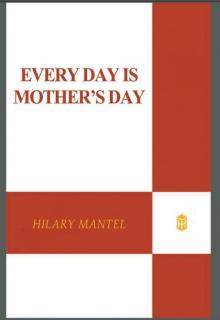 Every Day Is Mother's Day
Every Day Is Mother's Day An Experiment in Love
An Experiment in Love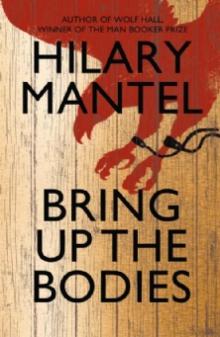 Wolf Hall
Wolf Hall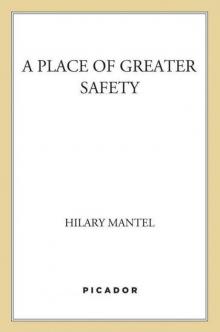 A Place of Greater Safety
A Place of Greater Safety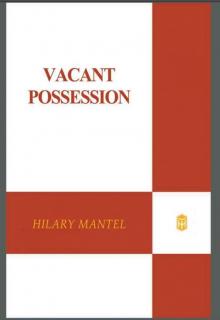 Vacant Possession
Vacant Possession The Giant, O'Brien
The Giant, O'Brien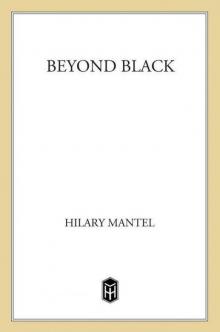 Beyond Black
Beyond Black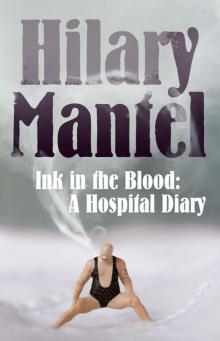 Ink in the Blood: A Hospital Diary
Ink in the Blood: A Hospital Diary The School of English
The School of English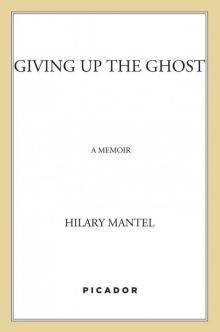 Giving Up the Ghost
Giving Up the Ghost The Mirror and the Light: 2020’s highly anticipated conclusion to the best selling, award winning Wolf Hall series (The Wolf Hall Trilogy, Book 3)
The Mirror and the Light: 2020’s highly anticipated conclusion to the best selling, award winning Wolf Hall series (The Wolf Hall Trilogy, Book 3) Fludd
Fludd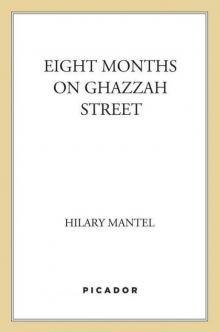 Eight Months on Ghazzah Street
Eight Months on Ghazzah Street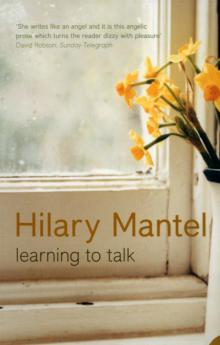 Learning to Talk
Learning to Talk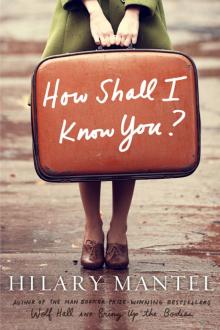 How Shall I Know You?: A Short Story
How Shall I Know You?: A Short Story A Change of Climate
A Change of Climate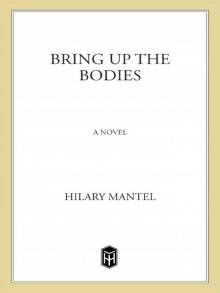 Bring Up the Bodies
Bring Up the Bodies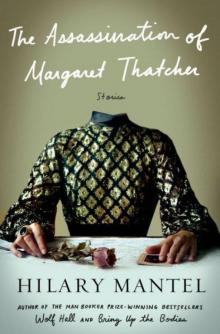 The Assassination of Margaret Thatcher: Stories
The Assassination of Margaret Thatcher: Stories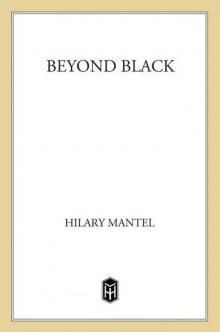 Beyond Black: A Novel
Beyond Black: A Novel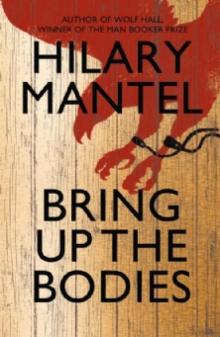 Wolf Hall: Bring Up the Bodies
Wolf Hall: Bring Up the Bodies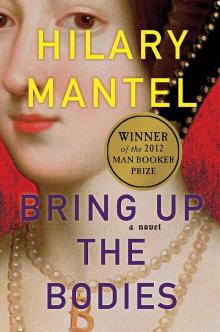 Bring Up the Bodies tct-2
Bring Up the Bodies tct-2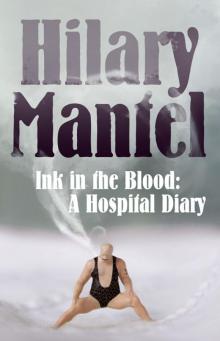 Ink in the Blood
Ink in the Blood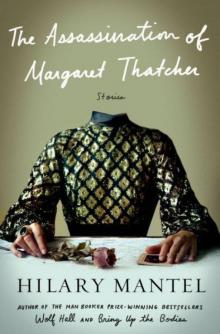 The Assassination of Margaret Thatcher
The Assassination of Margaret Thatcher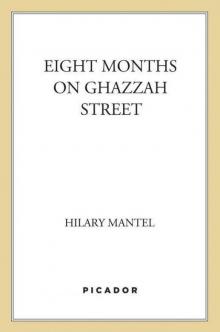 Eight Months on Ghazzah Street: A Novel
Eight Months on Ghazzah Street: A Novel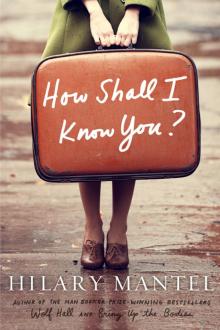 How Shall I Know You?
How Shall I Know You? A Change of Climate: A Novel
A Change of Climate: A Novel The Giant, O'Brien: A Novel
The Giant, O'Brien: A Novel Fludd: A Novel
Fludd: A Novel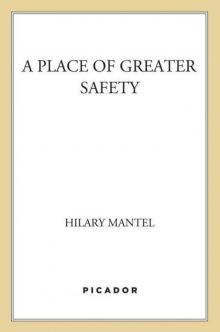 A Place of Greater Safety: A Novel
A Place of Greater Safety: A Novel An Experiment in Love: A Novel
An Experiment in Love: A Novel